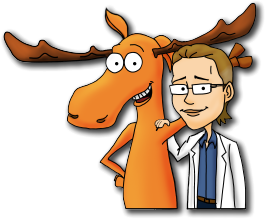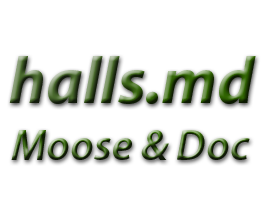The stereotypical image of a vegan, in the past, was a peace-loving, free-spirited, lentil-eating hippy. Veganism is usually associated with those ethically opposed to the cruelty involved in the mass farming of animals for meat and goods.
However, a vegetarian or vegan way of eating is at an all-time high with celebrities like Mike Tyson, Ellen Page and Miley Cyrus leading the way. Furthermore, other celebs such as Jay-Z and Beyonce are experimenting too recently trying a 22 day vegan challenge.
Interestingly, more and more mainstream shoppers are choosing vegan food over meat-based diets, even though they do not follow a strict vegan lifestyle.
This post will mainly be looking at a few top tips that you may need to know if you are thinking of changing to a Vegan Diet.
What is the difference between a vegetarian and a vegan diet?
For some, the differences between a vegan and vegetarian are not fully understood. Indeed, there is confusion just surrounding the term ‘vegetarian’ alone and what exactly it means.
Some people claim to be vegetarian but still eat fish, whilst others eat dairy products.
Top Tip #1: Ensure your Protein intake.
Adequate protein intake is one of the major concerns of people who are thinking of switching to a vegan diet. Importantly for health, each and every meal should include protein.
Indeed, proteins are the key building blocks of the body, because protein changes into essential amino acid that benefits cell growth and repair.
The Institute of Medicine advises that adults take 0.8 grams of protein every day for each kilogram of body mass. Furthermore, the Dietary reference Intake from the National Institute of Health recommends around 46 grams of protein for women and 56 grams for men.
What are the best sources of protein for a Vegan?
… and even more plant-based proteins.
Nuts and nut butter are a great source of both protein and healthy fats, although they are high in calories so be careful of that waistline.
Beans of all types are a great source of protein too. There are so many different types to choose from such as black beans, white beans, pinto beans and kidney beans. Did you now that two cups of kidney beans has almost the same amount of protein as a Big Mac?
Tempeh and Tofu: Classic vegetarian and vegan meat replacement foods, tempeh and tofu are made from soybeans and again, are a great source of protein at around 15 – 20 grams a cup.
Other Protein sources include milk substitutes, leafy greens, seeds and hemp.
Top Tip #2: Keep your Vitamin B12 levels up
Vitamin B12 is only found, in it’s natural form, in animal foods such as shellfish, fish, liver, crab, red meat, low fat dairy, cheese, and eggs.
If you are slightly deficient in B12 you may suffer from anemia, depression and fatigue. However, more serious deficiency can lead to serious diseases of the brain and central nervous system.
Obviously, if you are vegan you will need to keep a careful eye on your B12 levels. The easiest way to do this is a simple blood test.
The best source of Vitamin B12 for vegans is fortified foods such as soy products and cereals. Aim for around 9 micrograms a day. Alternatively, you should invest in a decent B12 supplement, taken either daily or weekly.
Top Tip #3: It’s all about Iron
Iron occurs in two forms: heme and non-heme.
So, heme iron comes from animal foods and is easily absorbed by the body. However, in a vegan or vegetarian diet, non-heme iron is derived from plant foods and is not as easily absorbed by the body.
Studies have shown that the iron requirements for vegetarians and vegans are 1.8 times higher than for meat eaters. The daily recommended amount of iron is 8mg per day for adults but 18 mg per day for women of menstruation age.
Good vegan iron sources include dried raisins, sunflower seeds, legumes and leafy greens. Furthermore, iron is more easily absorbed, (in fact up to 6 times more), if a food rich in vitamin C is added to the meal.
Examples of foods rich in Vitamin C include broccoli, citrus fruits, red peppers, kale, tomatoes and peas.) aid iron absorption.
Fat-soluble vitamin A, D, E and K are also important on a vegan diet. Examples of vegan foods rich in Vitamin A are carrots, kale, spinach and sweet potato – boost your bodies absorption by taking with olive oil.
Top Tip #4: Do not replace Animal Products with Junk Food
Exchanging meat for refined carbohydrates such as pasta and white bread or processed food will set you up for both failure and weight gain.
It is not a great idea to swap animal products that are full of vitamins, protein, and minerals, for processed foods that supply very little nutritional value other than calories.
You can follow a low-fat vegan diet or a low-carb vegan diet too. Too much junk food will result in weight gain, hunger, and a really bad mood into the bargain.
Top Tip #5: Careful with the Soy Products
It is safe to say that critics of soy products exaggerate the hazards of soy and conversely, the promoters may overstate the health benefits.
The US Food and Drug Administration (FDA) approved the claim that soy products can lower (bad) cholesterol levels therefore reducing the risk for heart disease as part of a low-fat and low-cholesterol diet. Indeed the reduced risk for cardiovascular disease (heart disease) associated with soy is the biggest health claim.
Alpha-linolenic acid is an important omega-3 fatty acid that is found in plants and soy. Interestingly, it may be this substance that is essential to some of the health claims surrounding soy.
Some early studies have suggested that soy-eating women may have a lower risk of breast cancer whilst others suggest that there may be an increased risk for positive hormone receptor tumors.
Soy is also linked with improving symptoms of menopause and endometriosis.
There are equal claims for the health risks of soy, however our advice is to consume soy in moderation and check packaging for sodium content and preservatives.
The healthiest sources of soy are, tempeh, tofu, miso, edamame and soy milk.
Top Tip #6: Start studiously reading food labels
If you are serious about being vegan, meticulously checking food labels, for animal products and nutritious content is a must.
There are many hidden animal products in foods, for example,Casein and whey are derived from milk and are often found in breads, cereal bars and granolas. Furthermore, tallow and gelatin (also known as suet) are derived from meat and found in a lot of products.
In addition, we have Natural Red 4 (also known as cochineal, carmine or cochineal extract, which is a food coloring derived from the dried bodies of female beetles. This is pretty head spinning if you ask me…!
Top Tip #7: You may feel Happier
Top Tip #8: Continue to Enjoy eating out in Restaurants
Just as veganism is becoming more well-known, so are vegan alternatives on just about every single restaurant menu.
Word to the wise: Even if your item of preference looks vegan, always check with your waiter about dishes on the menu to guarantee that
Think about hidden butter or chicken stock and if you are up for trying an all-vegan restaurant, then there are plenty to choose from in most cities!
If you are going to a main-stream restaurant a good tip is to call ahead and discuss menu options beforehand. This way the chef and waiters can be really clear. Another good option is to check out the menus, where possible, on line.
Top Tip #9: Keep an eye on your Calcium Levels
For adults between the ages of 19 and 50 a minimum of 1,000 mg of calcium per day is recommended. However, preliminary research studies show that vegans may be able to get away with less than that.
A study once discovered that when vegans absorbed at least 525 mg per day of calcium, their danger of bone fracture was no greater than that of non-vegetarians with very similar calcium intakes.
The most crucial is eating an assortment of naturally calcium-rich foods. Good examples of vegan calcium sources are, plant-based milks, cereals, and tofu made with calcium sulfate.
In addition, an extra benefit is that soy, leafy greens, and most fortified foods are high in vitamin D, as well, which helps your body to absorb calcium.
Recent Diet Posts
- The Pegan Diet
- Index of Diet Posts
- Paleo diet
- The Atkins Diet Revisited
- The HCG Diet
- The Mediterranean diet
- Dash Diet: Voted the best diet for 6 years in a row – find out why here.
- The Military Diet: A crazy low-carb, low-calorie diet – only for the brave.
- Index of Diet for Diseases Articles
Return to Homepage
References
- Key TJ, Appleby PN, Rosell MS. (2006) Health effects of vegetarian and vegan diets. Proc Nutr Soc. 2006 Feb;65(1):35-41. (Retrieved November 20th 2016)https://www.ncbi.nlm.nih.gov/pubmed/16441942
- Le LT, Sabaté J. (2014) Beyond meatless, the health effects of vegan diets: findings from the Adventist cohorts. Nutrients. 2014 May 27;6(6):2131-47 (Retrieved Novemeber 20th 2016) https://www.ncbi.nlm.nih.gov/pubmed/24871675


